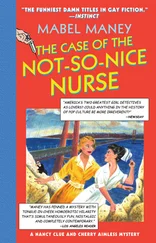Woke at midnight, swimming up from aubergine nightmare. Petal getting into a bread truck. The driver is gross, a bald head, mucus suspended from his nostrils, his hands covered with some unspeakable substance. Quoyle has the power to see both sides of the truck at once. Sees the hands reaming up under Petal’s dress, the face lowering into her oaken hair, and all the time the truck careening along highways, swaying over bridges without railings. Quoyle is somehow flying along beside them, powered by anxiety. Clusters of headlights flicker closer. He struggles to reach Petal’s hand, to pull her out of the bread truck, knowing what must come (wishing it for the driver who has metamorphosed into his father) but cannot reach her, suffers agonizing paralysis though he strains. The headlights close. He shouts to tell her death is imminent, but is voiceless. Woke up pulling at the sheet.
For the rest of the night he sat in the living room with a book in his lap. His eyes went back and forth, he read, but comprehended nothing. The aunt was right. Get out of here.
¯
It took half an hour to get a phone number for Partridge.
“Goddamn! I was just thinking about you the other day.” Partridge’s voice came fresh in the wires. “Wondering what the hell ever happened to old Quoyle! When you going to come out and visit? You know I quit the papers, don’t you? Yeah, I quit ‘em.” The thought of Mercalia on the road alone, he said, made him go to the truck driver school himself.
“We’re a driving team, now. Bought a house two years ago. Planning on buying our own rig pretty soon, doing independent contracting. These trucks are sweet-double bunk, little kitchenette. Air-conditioned. We sit up there over the traffic, look down on the cars. Making three times the money I was. Don’t miss newspapers at all. So what’s new with you, still working for Punch?”
It only took ten or eleven minutes to tell Partridge everything, from falling in one-way love to riding the nightmares, to leaning over a tableful of maps with the aunt.
“Son of a bitch, Quoyle. You been on the old roller coaster. You had the full-course dinner. Least you got your kids: Well, I’ll tell you. I’m out of the newspaper game but still got some contacts. See what I come up with. Gimme the names of the nearest towns again?”
There was only one, with the curious name of Killick-Claw.
¯
Partridge back on the line two days later. Pleased to be fixing Quoyle’s life up again. Quoyle made him think of a huge roll of newsprint from the pulp mill. Blank and speckled with imperfections. But beyond this vagueness he glimpsed something like a reflection of light from a distant hubcap, a scintillation that meant there was, in Quoyle’s life, the chance of some brilliance. Happiness? Good luck? Fame and fortune? Who knows, thought Partridge. He liked the rich taste of life so well himself he wished for an entree or two for Quoyle.
“Amazes me how the old strings still pull. Yeah, there’s a paper up there. A weekly. They looking for somebody, too. You interested, I’ll give you the name I got. Want somebody to cover the shipping news. Guess it’s right on the coast. Want somebody with maritime connections if possible. Quoyle, you got maritime connections?”
“My grandfather was a sealer.”
“Jesus. You always come at me out of left field. Anyway, it works out, you got to handle work permits and immigration and all that. Deal with those guys. O.k. Managing editor’s name is Tertius Card. Got a pencil? Give you the number.”
Quoyle wrote it down.
“Well, good luck. Let me know how it goes. And listen, any time you want to come out here, stay with Mercalia and me, you just come on. This is a real good place to make money.”
But the idea of the north was taking him. He needed something to brace against.
A month later they drove away in his station wagon. He took a last look in the side mirror at the rented house, saw the empty porch, the forsythia bush, the neighbor’s flesh-colored slips undulating on the line.
¯
And so Quoyle and the aunt in the front seat, the children in the back, and old Warren sometimes with the suitcases, sometimes clambering awkwardly up to sit between Bunny and Sunshine. They made her paper hats from napkins, tied the aunt’s scarf around her hairy neck, fed her French fries when the aunt wasn’t looking.
Fifteen hundred miles, across New York, Vermont, angling up through Maine ’s mauled woods. Across New Brunswick and Nova Scotia on three-lane highways, trouble in the center lane, making the aunt clench her hands. In North Sydney plates of oily fish for supper, and no one who cared, and in the raw morning, the ferry to Port-Aux-Basques. At last.
¯
Quoyle suffered in the upholstery, the aunt strode the deck, stopped now and then to lean on the rail above the shuddering water. Or stood spraddle-legged, hands knotted behind her back, facing wind. Her hair captured under a babushka, face a stone with little intelligent eyes.
She spoke of the weather with a man in a watch cap. They talked awhile. Someone else reel footing along, said, Rough today, eh? She worried about Warren, down in the station wagon, tossing up and down. Wouldn’t know what to make of it. Never been to sea. Probably thought the world was coming to an end and she all alone, in a strange car. The man in the watch cap said, “Don’t worry, dog’ll sleep the ‘ole way across. That’s ‘ow dogs are.”
The aunt looked out, saw the blue land ahead, her first sight of the island in almost fifty years. Could not help tears.
“Comin’ ‘ome, eh?” said the man in the watch cap. “Yar, that’s ‘ow it takes you.”
This place, she thought, this rock, six thousand miles of coast blind-wrapped in fog. Sunkers under wrinkled water, boats threading tickles between ice-scabbed cliffs. Tundra and barrens, a land of stunted spruce men cut and drew away.
How many had come here, leaning on the rail as she leaned now. Staring at the rock in the sea. Vikings, the Basques, the French, English, Spanish, Portuguese. Drawn by the cod, from the days when massed fish slowed ships on the drift for the passage to the Spice Isles, expecting cities of gold. The lookout dreamed of roasted auk or sweet berries in cups of plaited grass, but saw crumpling waves, lights flickering along the ship rails. The only cities were of ice, bergs with cores of beryl, blue gems within white gems, that some said gave off an odor of almonds. She had caught the bitter scent as a child.
Shore parties returned to ship blood-crusted with insect bites. Wet, wet, the interior of the island, they said, bog and marsh, rivers and chains of ponds alive with metal-throated birds. The ships scraped on around the points. And the lookout saw shapes of caribou folding into fog.
Later, some knew it as a place that bred malefic spirits. Spring starvation showed skully heads, knobbed joints beneath flesh. What desperate work to stay alive, to scrob and claw through hard times. The alchemist sea changed fishermen into wet bones, sent boats to drift among the cod, cast them on the landwash. She remembered the stories in old mouths: the father who shot his oldest children and himself that the rest might live on flour scrapings; sealers crouched on a floe awash from their weight until one leaped into the sea; storm journeys to fetch medicines-always the wrong thing and too late for the convulsing hangashore.
She had not been in these waters since she was a young girl, but it rushed back, the sea’s hypnotic boil, the smell of blood, weather and salt, fish heads, spruce smoke and reeking armpits, the rattle of wash-ball rocks in hissing wave, turrs, the crackery taste of brewis, the bedroom under the eaves.
Читать дальше











